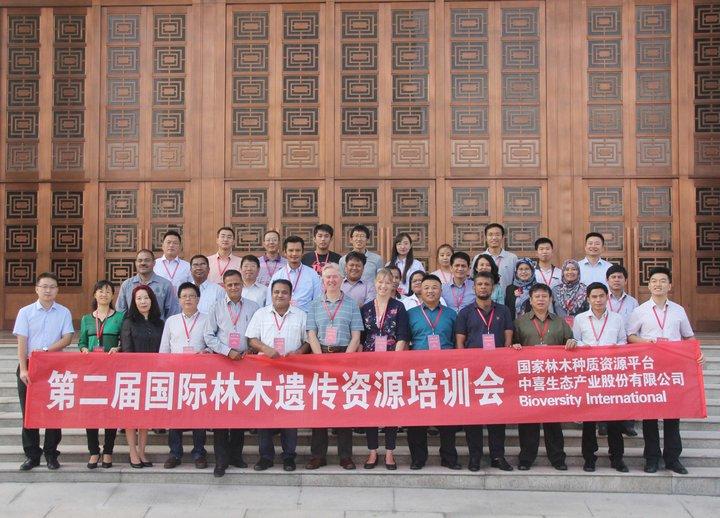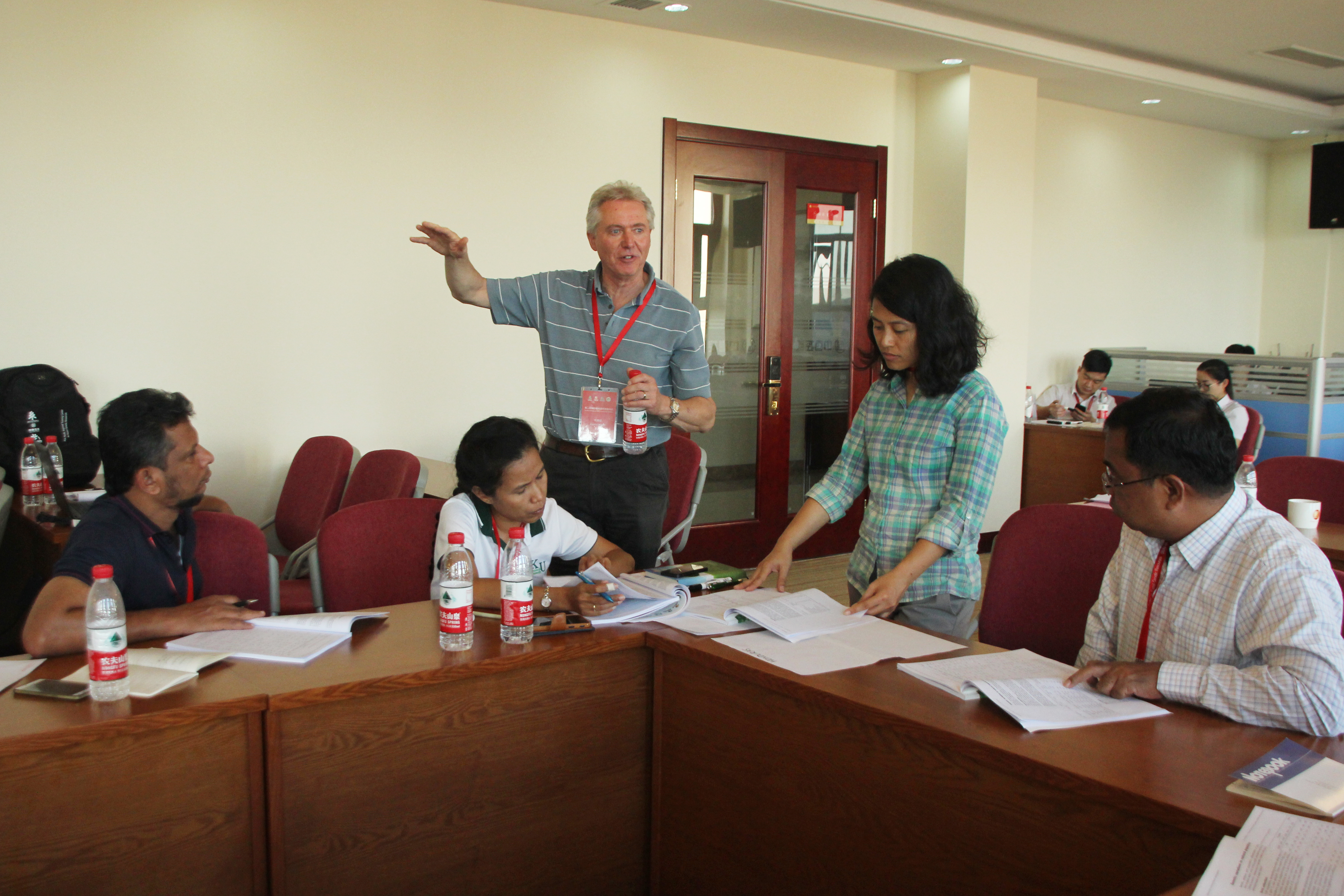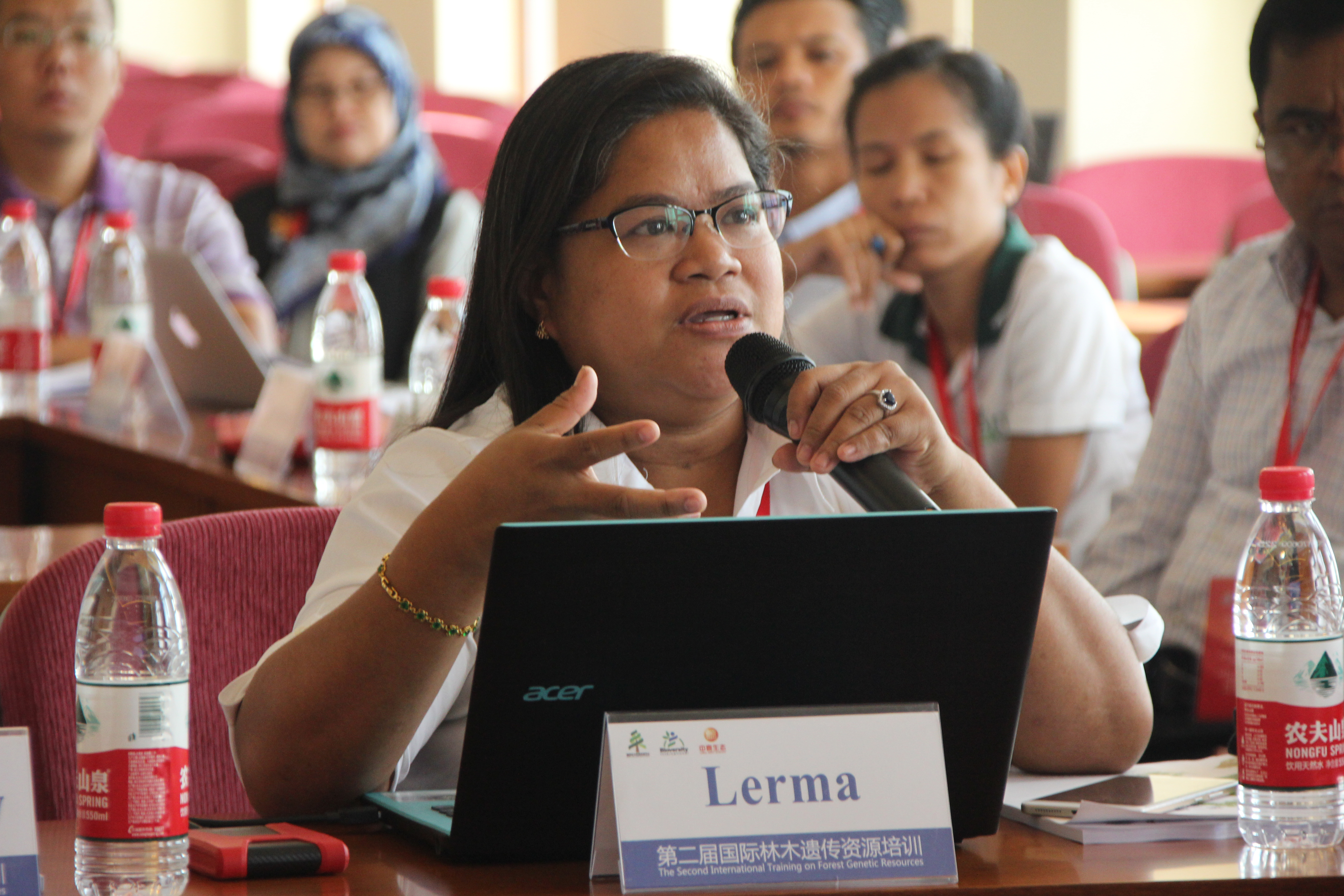When the sequel is as good as the original: reporting from the second forest genetic resources training

Forestry experts Riina Jalonen and David Boshier report from a very successful Second Regional Training Course on Forest Genetic Resources, held in Binzhou, China - a course aimed at equipping lecturers with basic knowledge on forest genetics.
Forestry experts Riina Jalonen and David Boshier report from a very successful Second Regional Training Course on Forest Genetic Resources, held in Binzhou, China - a course aimed at equipping lecturers with basic knowledge on forest genetics.
In May 2017, we launched an open call for applications for forestry lecturers in Asia-Pacific to attend the Second Regional Training Course on Forest Genetic Resources, to be held in Binzhou, China, in September. The response took us by surprise: more than 70 people from 48 universities and research institutions and 15 countries wrote to us expressing a keen interest to participate.
The applications offered a glimpse of the state of forest genetics teaching in the region. Many applicants explained how they had been assigned to teach genetics courses, yet had no background on the subject. In some universities, the only staff with tree genetics training were retiring, with nobody else capable to pick up the baton. And across the region, people lamented the lack of teaching materials, and students’ lukewarm interest for courses on genetics, often considered as an overly technical subject.
This lack of genetics expertise and knowledge is worrying: the prospects do not look promising for the region with thousands of socio-economically important yet little studied tree species, 430 million forest-dependent people and rapidly progressing climate change that is already resulting in increasingly adverse weather and salinization of low-lying areas. Future foresters need to be able to understand the basics of adaptive capacity in tree species and how to maintain it, ensure the productivity of socio-economically important species in increasingly fragmented landscapes, and identify viable seed sources for restoring at least 20 million hectares of forested landscapes, following regional political commitments.
The regional training course aimed at responding to these needs by equipping lecturers with basic knowledge on genetic principles, and with teaching materials custom-made for those without a background in genetics. What is more, they got to test all the materials hands-on, going through each case study in groups and developing their own species conservation, management and seed sourcing strategies.
 The training was given by David Boshier (pictured on the right), a senior researcher at the Department of Plant Sciences, University of Oxford and Bioversity International Honorary Fellow, who had also developed the training materials. “Forestry and biology students, forest managers and restoration practitioners are well aware of issues such as agroforestry, selective logging, seed sourcing for restoration, conservation of endangered species. By focusing on such practical issues it immediately helps participants to see the relevance of the genetics case study they are assigned. They are also able to think of similar situations in their own work and country, which increases the appeal of the learning and its potential uses. Working in groups allows a fuller discussion of issues and the airing of different viewpoints which doesn’t occur in the more formal lecture presentation. Participants usually leave not only with a new vision of the relevance of genetics to day to day management issues, but also new ideas on approaches to traditional teaching which is often of the ‘I talk and you listen’ type," David said after the training.
The training was given by David Boshier (pictured on the right), a senior researcher at the Department of Plant Sciences, University of Oxford and Bioversity International Honorary Fellow, who had also developed the training materials. “Forestry and biology students, forest managers and restoration practitioners are well aware of issues such as agroforestry, selective logging, seed sourcing for restoration, conservation of endangered species. By focusing on such practical issues it immediately helps participants to see the relevance of the genetics case study they are assigned. They are also able to think of similar situations in their own work and country, which increases the appeal of the learning and its potential uses. Working in groups allows a fuller discussion of issues and the airing of different viewpoints which doesn’t occur in the more formal lecture presentation. Participants usually leave not only with a new vision of the relevance of genetics to day to day management issues, but also new ideas on approaches to traditional teaching which is often of the ‘I talk and you listen’ type," David said after the training.
David guided the groups through each exercise, helping them to discuss and draw their own conclusions rather than providing ready answers. When the participants returned home, they received a complete set of the Forest Genetic Resources teaching materials, including videos, PowerPoints and teacher’s notes to help them run the exercises back home with their own students. The materials are also freely available online.
 Lerma Maldia (pictured on the left), Assistant Professor at the College of Forestry and Natural Resources, University of the Philippines Los Baños, was thrilled about the training: “I gained many useful insights, which I can incorporate in courses I teach such as Forest Genetics and Forest Biodiversity. For three years, I have offered courses on forest genetics both for undergraduate and graduate students. There was positive feedback, but I had difficulty in elevating the level of discourse to graduate students. By including exercises from the Forest Genetic Resources training modules, I believe the topics will be more interesting and challenging. After the training, I also had the realization that my responsibility as an educator should not be confined within the four corners of the classroom. I think I should actively be involved in 'tooling' or 're-tooling' concerned people in the government and other private institutions who are involved in the conservation of forest genetic resources in our country.”
Lerma Maldia (pictured on the left), Assistant Professor at the College of Forestry and Natural Resources, University of the Philippines Los Baños, was thrilled about the training: “I gained many useful insights, which I can incorporate in courses I teach such as Forest Genetics and Forest Biodiversity. For three years, I have offered courses on forest genetics both for undergraduate and graduate students. There was positive feedback, but I had difficulty in elevating the level of discourse to graduate students. By including exercises from the Forest Genetic Resources training modules, I believe the topics will be more interesting and challenging. After the training, I also had the realization that my responsibility as an educator should not be confined within the four corners of the classroom. I think I should actively be involved in 'tooling' or 're-tooling' concerned people in the government and other private institutions who are involved in the conservation of forest genetic resources in our country.”
Didn't make it to this training but want to attend the next? Stay tuned for the third edition of the regional training course in September 2018, by following the initiative at www.apforgen.org
The Asia Pacific Regional Training Centre on Forest Genetic Resources is a joint initiative by the National Forest Genetic Resources Platform of China, the Chinese Academy of Forestry, the Asia Pacific Forest Genetic Resources Programme (APFORGEN), the Asia Pacific Association of Forestry Research Institutions (APAFRI), Bioversity International and China Happy Ecology Industrial Ltd., a private company working on tree breeding and ecological restoration. Partnering organizations are grateful to China Happy Ecology for their generous support that made possible the establishment of the Training Centre.
Photos by China Happy Ecology Industrial Ltd.
